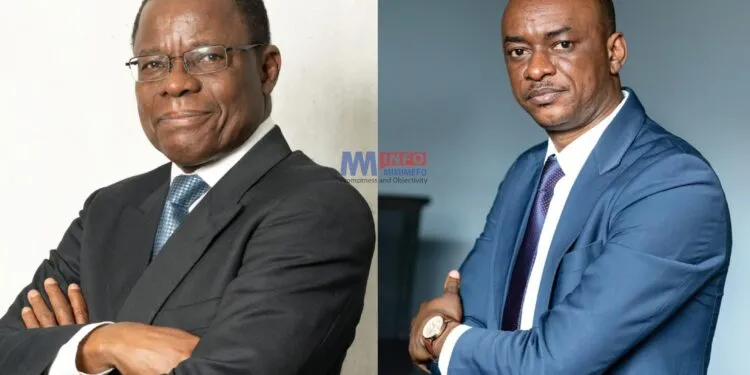With the presidential elections approaching in Cameroon this October, MMI examines the manifestos of opposition leaders who ran in the 2018 presidential elections. In a case study of the two opposition politicians who came second and third after Biya, their manifestos did not understand the plight of Anglophones in Cameroon. Professor Maurice Kamto of the MRC Party was second, followed by Cabral Libii. These two have the desire to rule Cameroon one day, but they appear not to be very much different from Paul Biya in handling the problems of Anglophones.
Their policies have indicated if they win, they are likely to follow a similar kind of governing like Biya, when it comes to the Anglophones.
Their 2018 Manifestos
MMI examined what Maurice Kamto presented as his manifesto in 2018. In the document presented in both languages, Kamto failed to convey a clear message on how he intended to address the Anglophone crisis. What he said that was somehow close to the Anglophones was “the settlement of the Anglophone crisis and the form of the State; the establishment of a policy of peaceful living together.”
He was however, not explicit whether he meant federation, Centralization, decentralisation or outright independence.
Meanwhile, Cabral Libii mentioned that if he is elected, he would Adopt Cameroonian regionalism as a form of government.
“We commit to giving regions the opportunity to create high schools and recruit teachers for said establishments, reduce the general allocation of decentralization from 0.30% to 10% as is the case in Rwanda; to establish the commune as a real lever of development.” He said.
Apart from that, they did not seem to care about the needs of Anglophones in Cameroon.
What Anglophones Want to hear
After independence, Anglophones lived in a federation. The local population elected the prime minister in parliament through their government.
They had the system that was holding elected officials to account. Through that, there was transparency in the management of public affairs. The 1972 referendum took that away.
In 1972, former President Ahijo organized a referendum where the majority Francophone overwhelmingly voted. That abolished the federation that was protecting the minority Anglophones.
Since then, they have clamoured to return to the federation, where they can make their voices heard.
Centralisation of power in Yaounde marginalises Anglophones, treats them as second-class citizens, and deprives their regions of development. These grievances resulted in a crisis that has killed thousands since 2016. The 2018 elections came and passed. Despite all strides and promises from politicians, the conflict is still raging.
The Anglophone Problem and the Anglophone Crisis
One of the challenges with Kamto’s outings since 2018, is that he and his party seem to think that the Anglophone crisis is synonymous with the Anglophone Problem. There is a fundamental difference.
The Anglophone Problem in Cameroon refers to the historical, political, and socio-economic grievances of the English-speaking regions (Northwest and Southwest) stemming from the country’s colonial legacy. It arises from the marginalization of Anglophones in governance, education, and legal systems by the Francophone-dominated government since the 1961 reunification of British Southern Cameroons and French Cameroun. Key issues include the erosion of the federal system, the imposition of the French civil law system over English common law, and limited political representation.
The Anglophone Crisis, on the other hand, refers to the violent conflict that erupted in 2016 when peaceful protests by Anglophone lawyers and teachers against marginalization were met with government repression. This escalated into an armed separatist movement seeking the independence of “Ambazonia.” The crisis has resulted in widespread human rights violations, displacement of civilians, and economic devastation in the affected regions.
In short, the Anglophone Problem is the root cause, while the Anglophone Crisis is the violent conflict that emerged from it.
What politicians should tell Anglophones
Politicians should be telling Cameroonians in general and Anglophones in particular, how they will go about resolving the Anglophone Problem. Dealing with the root cause of the issue is essential to avoiding a repeat of the current crisis.
Instead of relying on empty phrases like “if I am elected, I will solve the conflict soon,” they should focus on the how and explain how this will solve the Anglophone Problem.
Anglophones want to hear them explicitly call it federation or independence, rather than just referring to it as a form of state. Anglophones demand to hear that their governors are elected, that English receives the same priority as French, that they should have their own police instead of gendarmes, and that Cameroon is not “La République du Cameroun.” They need to know that they will manage economic resources in their regions.
Furthermore, they should build the Limbe seaport in no time, and resume operation of Tiko, Bisongabang, and Bamenda airports by then.
Power sharing or rotation of the presidency between Anglophones and Francophones, and respect for Anglo-Saxon education and common law.
With all these, they will begin to have that sense of belonging. The politician who says these will resonate with the people of North West and South West.



